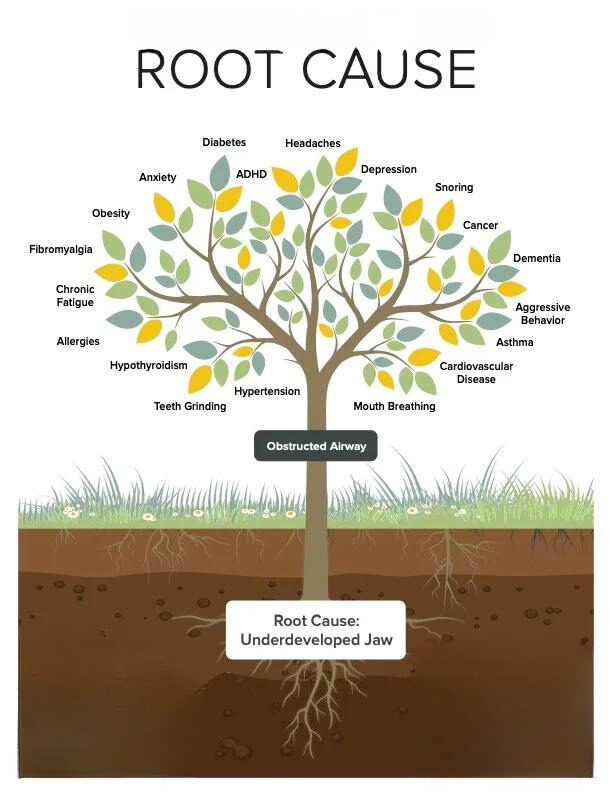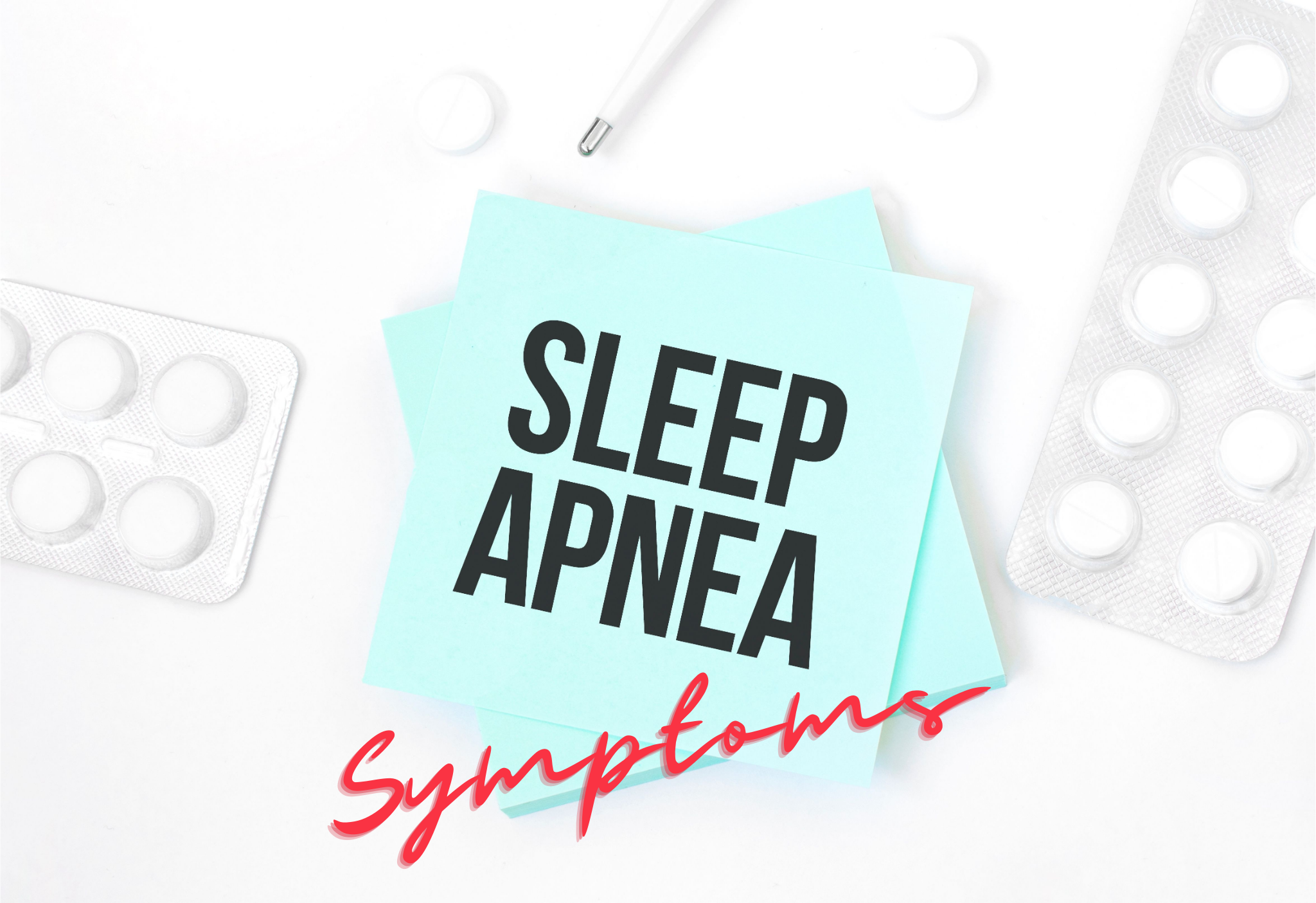Do you often feel overwhelmingly sleepy in the morning? Are you reliant on copious amounts of coffee to make it through your day? Do you find yourself immediately falling asleep once your head hits the pillow at night? These symptoms might seem like normal signs of fatigue or aging, but they could indicate a more serious condition—adult sleep apnea.
Sleep apnea disrupts your breathing throughout the night, causing you to stop and start breathing without even realizing it. This can happen hundreds of times, leading to fragmented sleep and leaving you feeling exhausted during the day. If not addressed, sleep apnea can severely impact your overall health.
The Symptoms of Adult Sleep Apnea
Excessive Daytime Sleepiness:
Excessive daytime sleepiness is a primary symptom of sleep apnea. If you find yourself constantly struggling to stay awake during the day, no matter how much sleep you got the night before, sleep apnea could be the culprit. This condition disrupts your sleep cycle, leading to significant sleep deprivation and chronic fatigue.
Snoring
Snoring is one of the most recognizable signs of sleep apnea, a condition where breathing repeatedly stops and starts during sleep. It’s not just any snoring—the sound typically comes in a pattern. For instance, a person might snore loudly for a period, followed by a silence when their breathing stops, then a loud snort or gasp as they resume breathing.
This cycle can repeat many times throughout the night, significantly disrupting sleep quality. If you or someone you know exhibits such patterns in snoring, it might be more than just a noisy annoyance; it could be a sign of sleep apnea.
Morning Headaches:
Regularly waking up with a headache or feeling groggy can also signal sleep apnea. The frequent drops in oxygen throughout the night can alter blood flow to your brain, resulting in morning headaches.
Mood Fluctuations:
Sleep apnea can also affect your mental and emotional health, leading to irritability, anxiety, and depression. The fragmented sleep and low oxygen levels prevent your brain from completing the necessary cycles for emotional regulation, causing noticeable mood swings.
Nocturia or Frequent Nighttime Urination:
Another symptom linked to sleep apnea is frequent nighttime urination. Sleep apnea-related oxygen drops trigger the release of hormones that increase urine production. Furthermore, disrupted sleep may heighten your awareness of bodily needs that would not interrupt deeper sleep phases.
Decreased Sexual Function:
Rapid onset of erectile dysfunction may be related to sleep disorders like sleep apnea, especially in men over 40. Studies show that many men with erectile dysfunction also suffer from sleep apnea. The disrupted oxygen flow and lack of restful sleep adversely affect hormone regulation, which can impact sexual performance.
Dry Mouth and Sore Throat Upon Waking:
Waking up with a dry mouth and sore throat frequently is another symptom of sleep apnea. The struggle to breathe through an obstructed airway often leads to sleeping with your mouth open, which dries out the mouth and throat and irritates throat muscles.
Night Sweats:
Excessive sweating at night can also be a response to the stress your body endures from not getting enough oxygen during episodes of sleep apnea. This can disrupt your body’s normal temperature regulation, leading to night sweats.
High Blood Pressure:
Sleep apnea significantly increases the risk of high blood pressure. Each pause in breathing during sleep raises your blood pressure and stresses the cardiovascular system, potentially leading to chronic hypertension and increasing the risk of heart-related problems.
Gasping or Choking During Sleep:
One of the most alarming symptoms of sleep apnea is gasping or choking during sleep, often noticed by others. This symptom is a result of the body’s reflex to resume breathing, which can become more frequent and severe as the condition progresses.

Lesser Known Symptoms of Obstructive Sleep Apnea (OSA)
Obstructive Sleep Apnea (OSA) is commonly associated with loud snoring and daytime fatigue, but there are several lesser-known symptoms that can also indicate the presence of this sleep disorder. Understanding these symptoms is crucial for early detection and effective management of OSA.
- Mouth Breathing: Often a response to blocked nasal passages during sleep.
- Nightmares and Restless Sleep: Frequent due to disruptions in sleep cycles.
- Chronic Allergies: Worsened respiratory symptoms due to airway obstruction.
- Bedwetting: Related to disruptions in sleep stages affecting bladder control.
- Swollen Tonsils or Adenoids: Common in children, can block airways.
- Irritability: Due to the impact of sleep loss on mood regulation.
- Headaches: Common in the morning from fluctuating oxygen levels.
- Grinding Teeth: A possible reflex to reopen the airway.
- ADD/ADHD: Symptoms like inattention may be exacerbated by poor sleep.
- Tongue & Lip Tie: Can contribute by affecting mouth and airway alignment.
- Depression: Often a result of long-term sleep disruption.
- Anger: Increased due to fatigue and poor sleep quality.
Recognizing these lesser-known symptoms can help in diagnosing OSA early, leading to better management and treatment options. If you or someone you know is experiencing several of these symptoms, it may be beneficial to discuss them with a healthcare provider, such as Dr. Carla Yamashiro at Ecologic Dentistry, who can offer specialized care and treatment plans tailored to sleep apnea.
Treating Sleep Apnea with Vivos at Ecologic Dentistry
Dr. Carla Yamashiro at Ecologic Dentistry uses the innovative Vivos System to effectively treat obstructive sleep apnea (OSA). This non-surgical approach focuses on remodeling the airway by expanding the dental arches and repositioning the jaw to increase airway size and reduce obstructions during sleep.
The treatment involves using a custom-fitted oral appliance nightly, typically for a duration of 12 to 24 months. Throughout this period, Dr. Yamashiro monitors the patient’s progress, adjusting the treatment as necessary to ensure optimal results.
The Vivos System provides a significant and enduring improvement in sleep quality and overall health and may provide an alternative to CPAP machines or other traditional therapies.
Act Now!
At Ecologic Dentistry, we understand the importance of a rejuvenating sleep. Dr. Carla Yamashiro is dedicated to diagnosing and treating sleep apnea to ensure you experience peaceful, uninterrupted sleep.
Here’s how we address it:
- Thorough Evaluation: We start by examining your complete sleep history and symptoms.
- Personalized Treatment Plan: We may recommend mouth appliances, breathing exercises, or advanced CPAP alternatives tailored to your needs.
- Continuous Support: We guide you towards clear airways and restful nights.
Don’t let sleep apnea compromise your well-being. Schedule a consultation today with Dr. Carla Yamashiro at Ecologic Dentistry, and start on the path to better sleep and brighter mornings. Meanwhile, visit our website for more insights on how sleep apnea might be affecting you!




